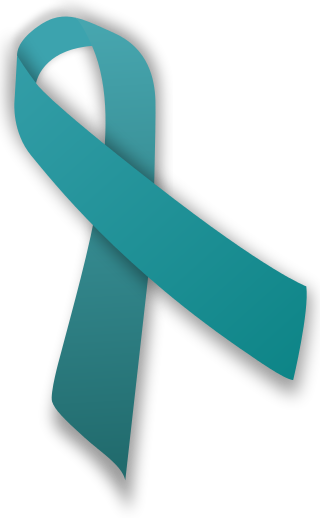Related Research Articles

The LGBTQ community is a loosely defined grouping of lesbian, gay, bisexual, transgender, and queer or questioning individuals united by a common culture and social movements. These communities generally celebrate pride, diversity, individuality, and sexuality. LGBTQ activists and sociologists see LGBTQ community-building as a counterweight to heterosexism, homophobia, biphobia, transphobia, sexualism, and conformist pressures that exist in the larger society. The term pride or sometimes gay pride expresses the LGBTQ community's identity and collective strength; pride parades provide both a prime example of the use and a demonstration of the general meaning of the term. The LGBTQ community is diverse in political affiliation. Not all people who are lesbian, gay, bisexual, or transgender consider themselves part of the LGBTQ community.

The field of psychology has extensively studied homosexuality as a human sexual orientation. The American Psychiatric Association listed homosexuality in the DSM-I in 1952 as a "sociopathic personality disturbance," but that classification came under scrutiny in research funded by the National Institute of Mental Health. That research and subsequent studies consistently failed to produce any empirical or scientific basis for regarding homosexuality as anything other than a natural and normal sexual orientation that is a healthy and positive expression of human sexuality. As a result of this scientific research, the American Psychiatric Association removed homosexuality from the DSM-II in 1973. Upon a thorough review of the scientific data, the American Psychological Association followed in 1975 and also called on all mental health professionals to take the lead in "removing the stigma of mental illness that has long been associated" with homosexuality. In 1993, the National Association of Social Workers adopted the same position as the American Psychiatric Association and the American Psychological Association, in recognition of scientific evidence. The World Health Organization, which listed homosexuality in the ICD-9 in 1977, removed homosexuality from the ICD-10 which was endorsed by the 43rd World Health Assembly on 17 May 1990.

LGBTQ culture is a culture shared by lesbian, gay, bisexual, transgender, and queer individuals. It is sometimes referred to as queer culture, while the term gay culture may be used to mean either "LGBT culture" or homosexual culture specifically.
A sexual minority is a demographic whose sexual identity, orientation or practices differ from the majority of the surrounding society. Primarily used to refer to lesbian, gay, bisexual, or non-heterosexual individuals, it can also refer to transgender, non-binary or intersex individuals.

Homophobia encompasses a range of negative attitudes and feelings toward homosexuality or people who identify or are perceived as being lesbian, gay or bisexual. It has been defined as contempt, prejudice, aversion, hatred, or antipathy, may be based on irrational fear and may sometimes be attributed to religious beliefs.
Gregory M. Herek is a researcher, author, and professor of psychology at the University of California at Davis (UCD). He has conducted extensive research on prejudice against sexual minorities, and coined the term sexual prejudice as a replacement for homophobia to describe this phenomenon. Herek argued that using the term homophobia incorrectly assumes that negative responses to lesbian, gay, and bisexual people are founded in pathological, irrational fear, whereas psychological research indicates they are more accurately regarded as a form of prejudice. Herek is an openly and prominent gay psychologist. Herek is considered one of the most influential scholars of sexual minorities.
Gay affirmative psychotherapy is a form of psychotherapy for non-heterosexual people, specifically gay and lesbian clients, which focuses on client comfort in working towards authenticity and self-acceptance regarding sexual orientation, and does not attempt to "change" them to heterosexual, or to "eliminate or diminish" same-sex "desires and behaviors". The American Psychological Association (APA) offers guidelines and materials for gay affirmative psychotherapy. Affirmative psychotherapy affirms that homosexuality or bisexuality is not a mental disorder, in accordance with global scientific consensus. In fact, embracing and affirming gay identity can be a key component to recovery from other mental illnesses or substance abuse. Clients whose religious beliefs are interpreted as teaching against homosexual behavior may require some other method of integration of their possibly conflicting religious and sexual selves.

The Think Before You Speak campaign is a television, radio, and magazine advertising campaign launched in 2008 and developed to raise awareness of the common use of derogatory vocabulary among youth towards lesbian, gay, bisexual, transgender, queer/questioning (LGBTQ) people. It also aims to "raise awareness about the prevalence and consequences of anti-LGBTQ bias and behaviour in America's schools." As LGBTQ people have become more accepted in the mainstream culture, more studies have confirmed that they are one of the most targeted groups for harassment and bullying. An "analysis of 14 years of hate crime data" by the FBI found that gays and lesbians, or those perceived to be gay, "are far more likely to be victims of a violent hate crime than any other minority group in the United States". "As Americans become more accepting of LGBT people, the most extreme elements of the anti-gay movement are digging in their heels and continuing to defame gays and lesbians with falsehoods that grow more incendiary by the day," said Mark Potok, editor of the Intelligence Report. "The leaders of this movement may deny it, but it seems clear that their demonization of gays and lesbians plays a role in fomenting the violence, hatred and bullying we're seeing." Because of their sexual orientation or gender identity/expression, nearly half of LGBTQ students have been physically assaulted at school. The campaign takes positive steps to counteract hateful and anti-gay speech that LGBTQ students experience in their daily lives in hopes to de-escalate the cycle of hate speech/harassment/bullying/physical threats and violence.
Various issues in medicine relate to lesbian, gay, bisexual, and transgender people. According to the US Gay and Lesbian Medical Association (GLMA), besides HIV/AIDS, issues related to LGBT health include breast and cervical cancer, hepatitis, mental health, substance use disorders, alcohol use, tobacco use, depression, access to care for transgender persons, issues surrounding marriage and family recognition, conversion therapy, refusal clause legislation, and laws that are intended to "immunize health care professionals from liability for discriminating against persons of whom they disapprove."
Research has found that attempted suicide rates and suicidal ideation among lesbian, gay, bisexual, and transgender (LGBTQ) youth are significantly higher than among the general population.
Minority stress describes high levels of stress faced by members of stigmatized minority groups. It may be caused by a number of factors, including poor social support and low socioeconomic status; well understood causes of minority stress are interpersonal prejudice and discrimination. Indeed, numerous scientific studies have shown that when minority individuals experience a high degree of prejudice, this can cause stress responses that accrue over time, eventually leading to poor mental and physical health. Minority stress theory summarizes these scientific studies to explain how difficult social situations lead to chronic stress and poor health among minority individuals.
Research shows that a disproportionate number of homeless youth in the United States identify as lesbian, gay, bisexual or transgender, or LGBT. Researchers suggest that this is primarily a result of hostility or abuse from the young people's families leading to eviction or running away. In addition, LGBT youth are often at greater risk for certain dangers while homeless, including being the victims of crime, risky sexual behavior, substance use disorders, and mental health concerns.

LGBT ageing addresses issues and concerns related to the ageing of lesbian, gay, bisexual and transgender (LGBT) people. Older LGBT people are marginalised by: a) younger LGBT people, because of ageism; and b) by older age social networks because of homophobia, biphobia, transphobia, heteronormativity, heterosexism, prejudice and discrimination towards LGBT people.
LGBTQ psychology is a field of psychology of surrounding the lives of LGBTQ+ individuals, in the particular the diverse range of psychological perspectives and experiences of these individuals. It covers different aspects such as identity development including the coming out process, parenting and family practices and support for LGBTQ+ individuals, as well as issues of prejudice and discrimination involving the LGBTQ community.
Due to the increased vulnerability that lesbian, gay, bisexual, and transgender (LGBT) youth face compared to their non-LGBT peers, there are notable differences in the mental and physical health risks tied to the social interactions of LGBT youth compared to the social interactions of heterosexual youth. Youth of the LGBT community experience greater encounters with not only health risks, but also violence and bullying, due to their sexual orientation, self-identification, and lack of support from institutions in society.

Sexual assault of LGBT people, also known as sexual and gender minorities (SGM), is a form of violence that occurs within the LGBT community. While sexual assault and other forms of interpersonal violence can occur in all forms of relationships, it is found that sexual minorities experience it at rates that are equal to or higher than their heterosexual counterparts. There is a lack of research on this specific problem for the LGBT population as a whole, but there does exist a substantial amount of research on college LGBT students who have experienced sexual assault and sexual harassment.
This article addresses victimization of bisexual women. Victimization is any damage or harm inflicted by one individual onto another. In the United States, bisexual women are more prone to various types of victization, for example, they experience childhood sexual abuse at rates 5.3 times higher than heterosexual women.
LGBT trauma is the distress an individual experiences due to being a lesbian, gay, bisexual, trans, queer person or from possessing another minoritized sexual or gender identity. This distress can be harmful to the individual and predispose them to trauma- and stressor-related disorders.
Winn Kelly Brooks was an American researcher and scholar in the field of minority stress theory. She is recognized as a pioneer of the concept of minority stress in sexual minority populations. Brooks completed a Doctorate in Social Work (DSW) and Social Welfare at University of California-Berkeley and published Minority Stress and Lesbian Women in 1981.
People who are LGBT are significantly more likely than those who are not to experience depression, PTSD, and generalized anxiety disorder.
References
- ↑ "Project Stride: Stress, Identity, and Mental Health: Home". Columbia University Mailman School of Public Health . Retrieved March 14, 2012.
- 1 2 3 "Our Faculty: Ilan H. Meyer". Columbia University Mailman School of Public Health. Retrieved March 8, 2012.
- 1 2 "Faculty: Ilan H. Meyer". University of California, Los Angeles. Archived from the original on February 22, 2012. Retrieved March 8, 2012.
- ↑ Van Guys, David. "An Interview with Ilan Meyer, Ph.D, on the Effects of Stress on Minority Mental Health". www.mentalhelp.net. Retrieved March 8, 2012.
- ↑ Meyer, Ilan H. Prejudice, Social Stress, and Mental Health in Lesbian, Gay, and Bisexual Populations: Conceptual Issues and Research Evidence Psychol Bull . 2003 September; 129(5): 674–697.
- ↑ "Report Brief - Institute of Medicine". Iom.edu. March 31, 2011. Archived from the original on April 30, 2011. Retrieved February 1, 2013.
- ↑ "Ilan H. Meyer, Williams Senior Scholar of Public Policy". Williamsinstitute.law.ucla.edu. Retrieved February 1, 2013.
- ↑ "Ilan Meyer Testimony, U.S. Commission on Civil Rights" (PDF). Retrieved 2013-11-02.
- ↑ "Prop. 8 trial Day 4: Live coverage from the courtroom - San Jose Mercury News". Mercurynews.com. January 14, 2010. Retrieved February 3, 2013.
- ↑ Berger, Stephanie (4 February 2010). "Ilan H. Meyer, PhD, Expert on Minority Stress, Testifies in Landmark California Proposition 8 Constitutional Challenge Case". Columbia University. columbia.edu. Retrieved March 8, 2012.
- ↑ "Perry v. Schwarzenegger Transcript of Proceedings: pp.670-990 (Meyer testimony on p.806)" (PDF). U.S. District Court of Northern California. American Foundation for Equal Rights. Retrieved March 8, 2012.